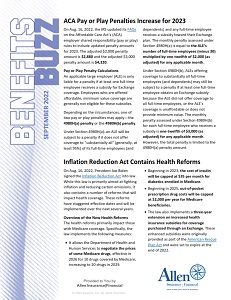As fall quickly approaches, so do the seasons of giving thanks, giving gifts, and for many, giving back. In fact, according to the 2021 Charitable Giving Report by the Blackbaud Institute, a cloud software company serving the nonprofit and social good community, 37 percent of all charitable giving happens in October, November, and December. And, thanks to the widespread use of social media, crowdfunding—raising money from a large number of contributors—is becoming the easiest method of soliciting funds for charities and personal causes.
The report also determined that online giving has grown 42 percent over the past three years, with a 9 percent increase in 2021 alone. So, whether you’re inspired to donate by Giving Tuesday, a Facebook birthday fundraiser, a teacher’s Amazon wish list, or a neighborhood family’s GoFundMe page, the chance to donate is just a click away. But there is more you need to know before you click. When you plan to donate to any charitable organization, including via social media, do your research. Here, we answer common questions about this accessible method of giving.
Is My Crowdfunding Donation Tax Deductible?
Many crowdfunding sites have a symbol or other indicator that the organization is a registered charity and, therefore, tax exempt and eligible to receive tax-deductible contributions. You can also go directly to the organization’s website to learn its tax status. In addition, the IRS has a tool called the Tax Exempt Organization Search (TEOS), which allows you to search any charity to determine whether it’s registered as a 501(c)(3) organization.
This search can also help you find out if the charity has had its tax-exempt status revoked, which can happen if it hasn’t filed the necessary paperwork for three consecutive years (among other reasons). Whether you write a check or donate through a Facebook fundraiser, a donation to a verified 501(c)(3) organization is tax deductible. Keep in mind that some charities, like religious organizations, aren’t required to have 501(c)(3) status, but donations to them are still tax deductible.
A donation to an individual, on the other hand, is not. You may feel compelled to give money to a family having trouble paying medical bills via GoFundMe, or to a good friend who launched a campaign to finance a new product via Kickstarter. While those are likely helpful and much-needed donations, they’re not tax deductible for the donor.
If you’re itemizing deductions on your tax return rather than taking the standard deduction, be sure to keep receipts and detailed records of your donations. Check with your financial advisor for guidance on how to maximize your tax savings.
How Can I Tell If a Request for Donations Is Legitimate?
While it’s fairly easy to visit the IRS search tool or a charitable organization’s website to research its tax status and government filings, individual or private recipients aren’t as easily vetted. Unless you personally know the recipient or can somehow verify their need, it’s wise to keep your giving to causes you trust. Of course, social networks do enable you to vet friends of friends, or view posts and comments that will help you to judge whether a cause is legitimate.
You can also look to the specific crowdfunding site to see if an organization does its own vetting. GoFundMe, for example, has a one-year guarantee wherein you can submit a claim through the site if you think you’ve contributed to a fraudulent fundraiser within that period. If its experts determine your donation went to an illegitimate cause (note: this determination is at the discretion of the site), you will be refunded in full.
What Percentage of Donations Actually Supports the Cause?
This varies from site to site, and it’s worthwhile for you to do some digging to make sure your gift has the largest impact. GoFundMe, for example, deducts a transaction fee of 2.9 percent plus $0.30 per donation. Facebook doesn’t charge transaction fees for donations to charitable organizations, but does deduct a 2.6 percent plus $0.30 processing fee for donations to personal causes.
Check the details on the specific platform you’re planning to use to help you determine whether it makes sense to donate through that site or another way. The charity website will also likely have a transaction fee to cover processing, but if you’re skeptical that your funding will actually reach the intended organization, donating directly instead of through social media may be your safest bet.
Is Donating Through Social Media Instead of the Organization Beneficial?
Donating with just the click of a mouse and the use of a credit card is the biggest benefit to this type of charitable giving. It also allows supporters to easily share fundraisers so they can inspire friends, family, and followers to donate to them as well. More than $6 billion has been raised globally through Facebook and Instagram for various causes—the reach is clearly wide. But, in terms of financial benefit to the giver, there is no significant difference between donating directly or donating via crowdfunding.
So, as fall approaches and you feel compelled to share your good fortune with those who are less fortunate, click the “donate” button to your heart’s content. Just remember to vet the site and the cause—and feel free to check with your financial advisor—before you do.
These tools/hyperlinks are being provided as a courtesy and are for informational purposes only. We make no representation as to the completeness or accuracy of information provided at these websites.
This material has been provided for general informational purposes only and does not constitute either tax or legal advice. Although we go to great lengths to make sure our information is accurate and useful, we recommend you consult a tax preparer, professional tax advisor, or lawyer.
© 2022 Commonwealth Financial Network®









